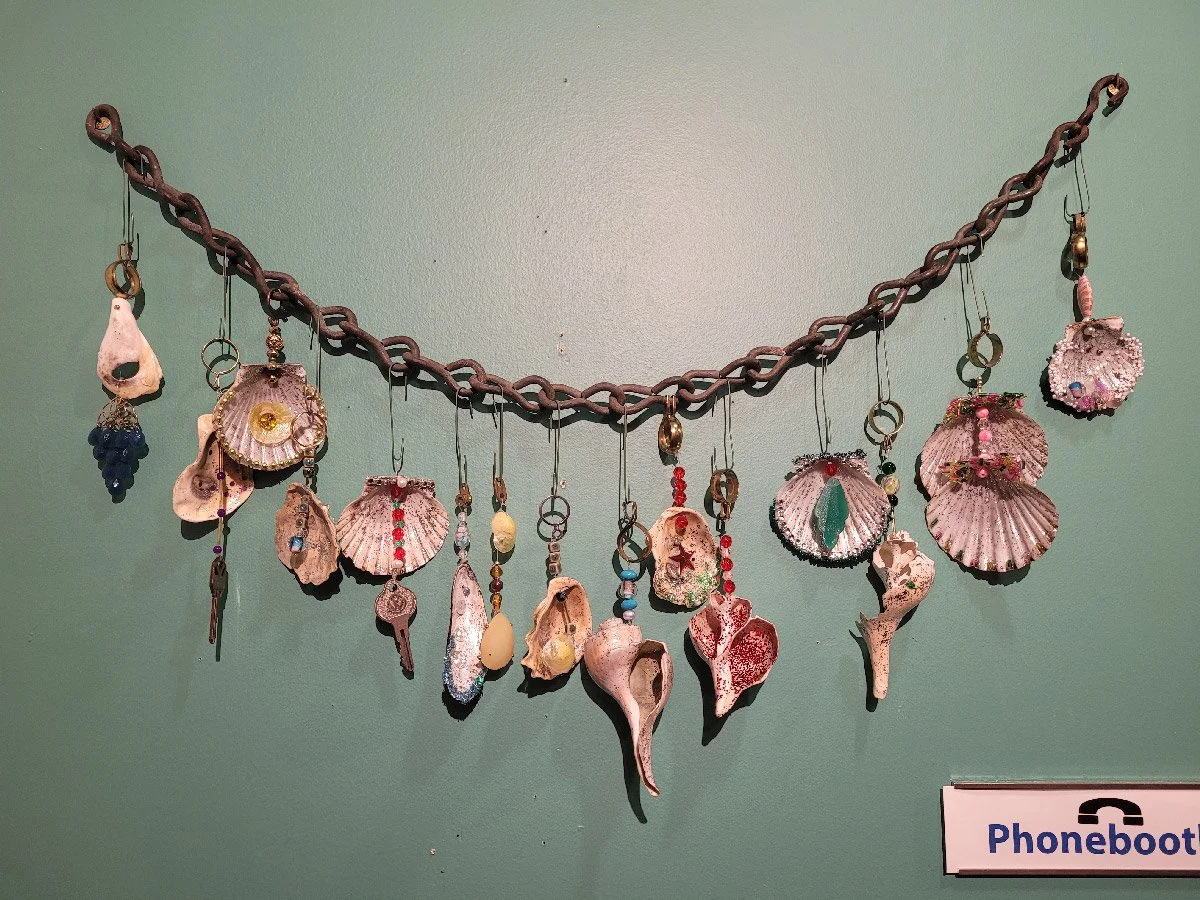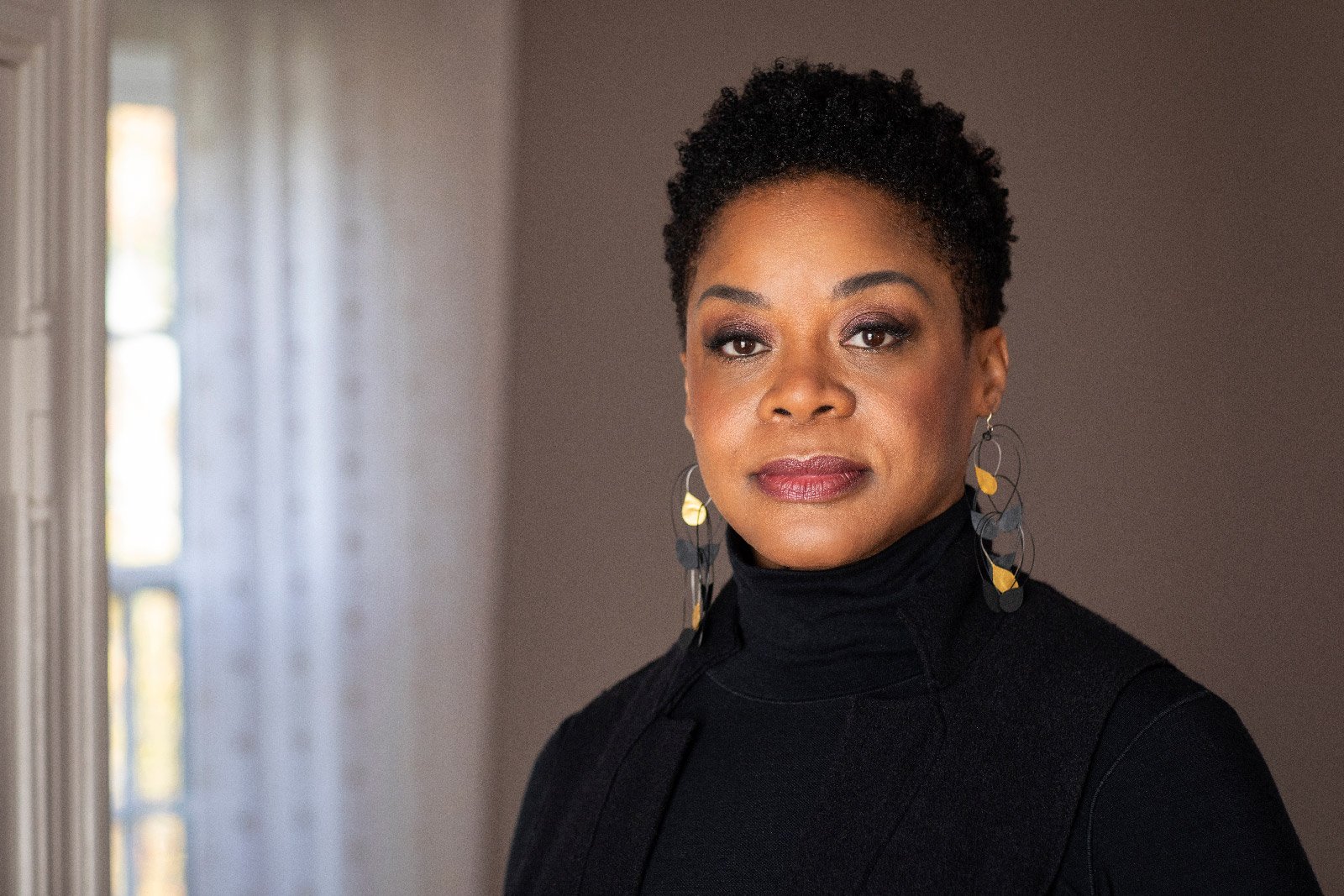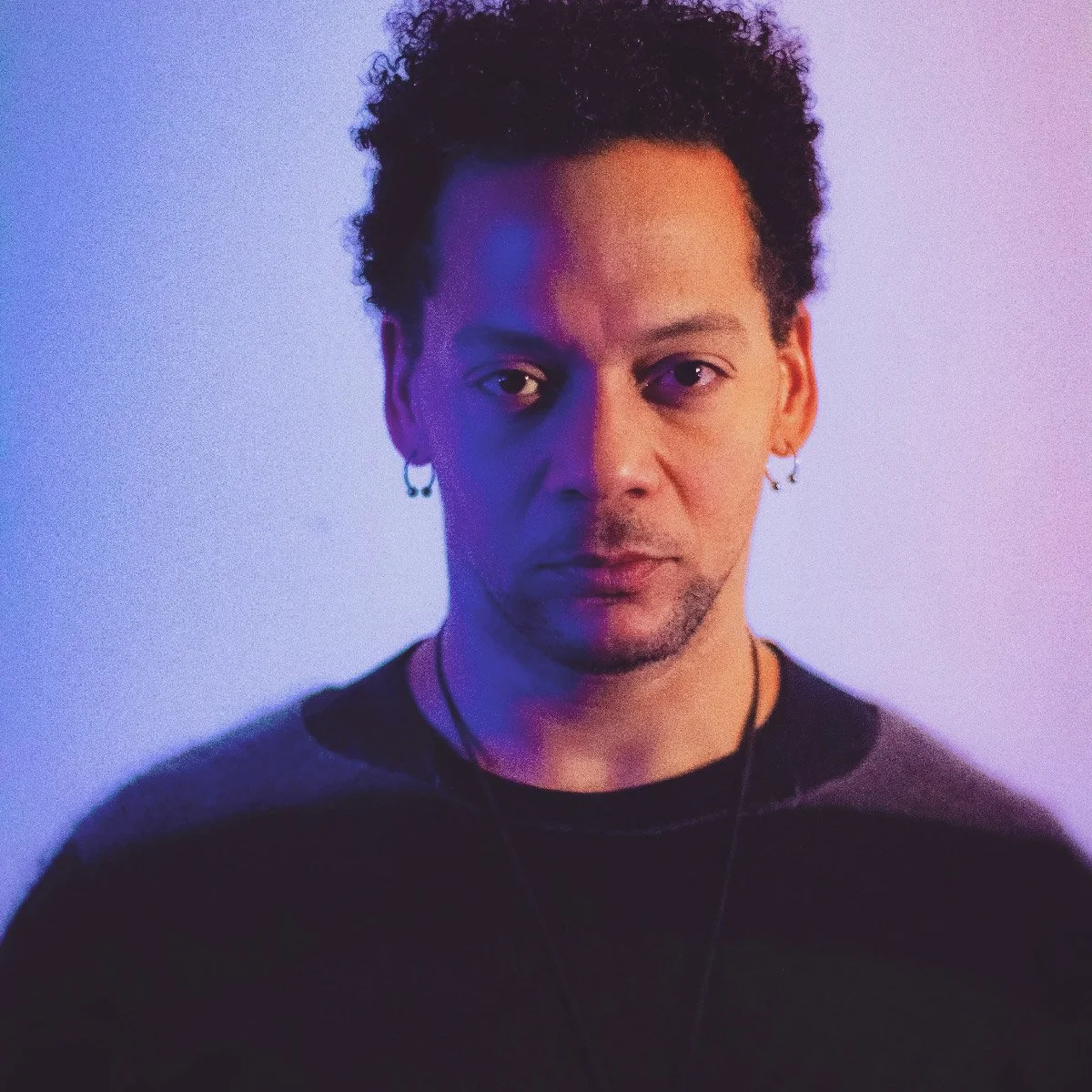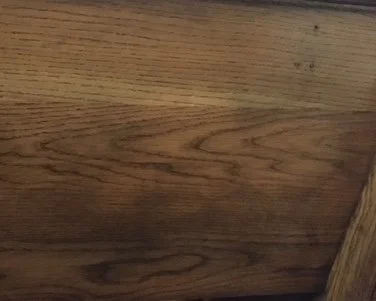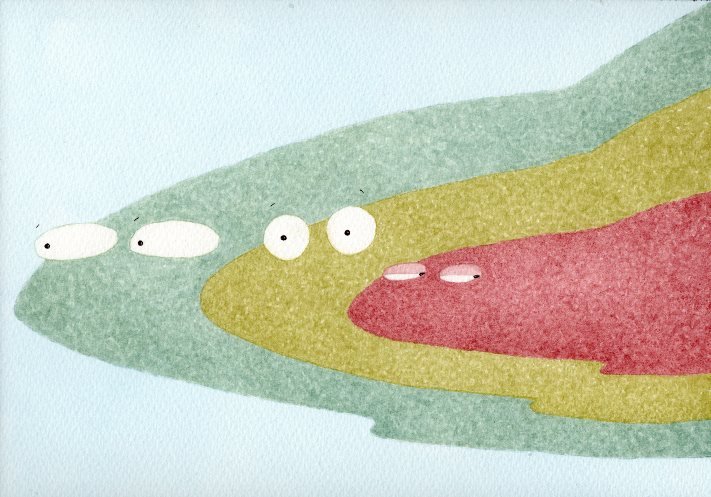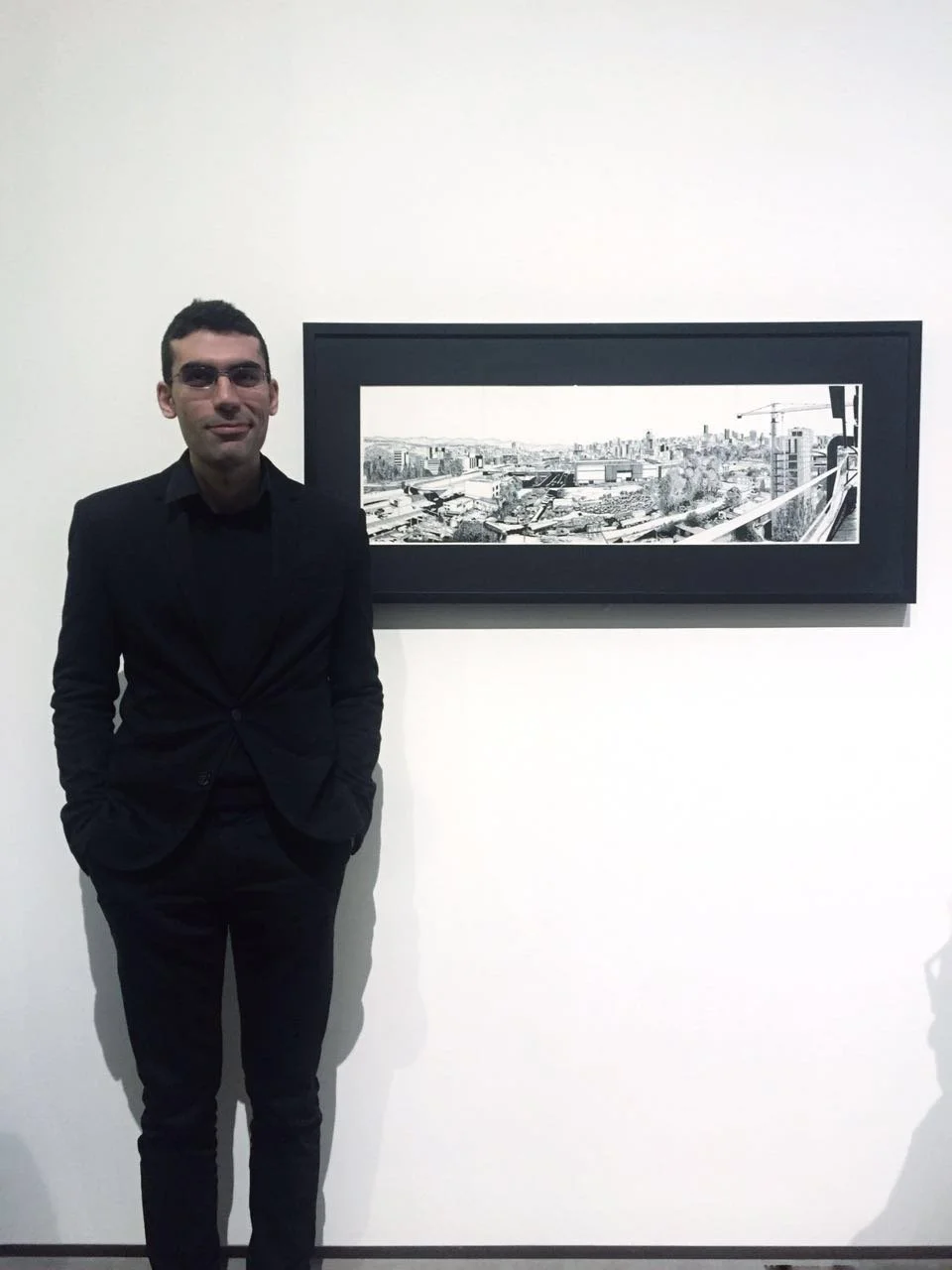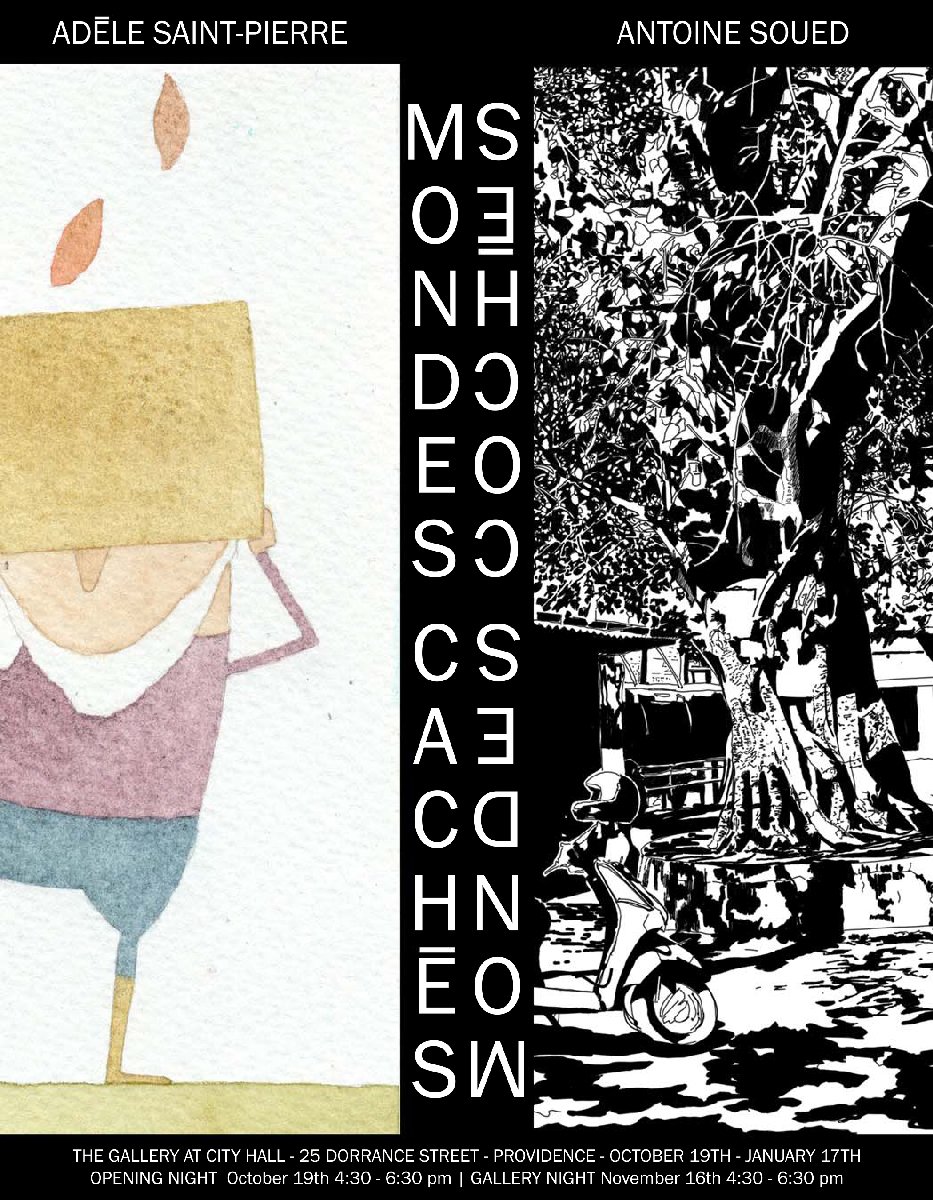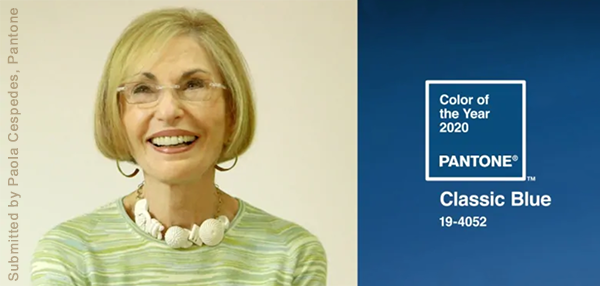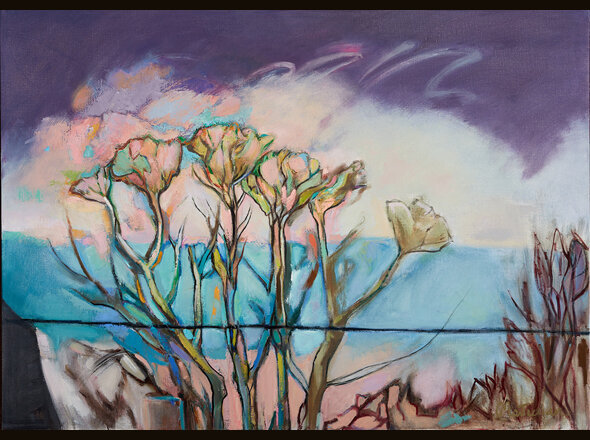Kelly Brown : So how did you get involved with gallery night? Were you involved from the beginning?
Anthony Tomaselli : I did not get started at the beginning, but I'm very good friends with Steven Pennell, who was one of the organizers.
KB: Yes, Steven’s the vice president. And he also runs the URI Providence Gallery.
AT: So, once I had a studio at the Deacon Taylor House beginning in 2004, It was then, soon thereafter got involved in Gallery Night.
KB: So what do you think is beneficial about gallery night to the city?
AT: For the city? I think at the beginning, it was very new in the country, I think Providence was one of the forerunners. But it was great for people to be acquainted with the galleries and the different kinds of galleries. And it was great for the galleries to know who else was out there. I think networking is a very large component of the success of the event. But I think it allowed people to do a great job and they still do a great job.
KB: Where do you think the Providence art scene, in general, is going to be going? Do you think it's just going to keep growing? Do you think it's going to become more inclusive?
AT: Providence has always been a more Underground art scene. You know, I'm involved in many galleries outside of Rhode Island, commercial galleries, and many of them are suffering in terms of just staying open. So the gallery scene in Rhode Island has always had this teeter-tottering of academic galleries; museum galleries; for-profit galleries; and now you have the open studios that are going on, like me, and whoever else is doing what I'm doing. So it's, it's always in flux. And I think the for-profit galleries have had a hard time. I mean, Berge has been an anomaly, with one of the only galleries staying open all these years. I'm not sure if there's anyone else that's open or that have been open all these years. Galleries come in and try to make a goal, and for some reason, they either go in a high end, very avant-garde edgy direction, of a commercial gallery, which is very difficult in Providence, and very few of them do a very traditional kind of gallery. But I mean the gallery scene is very diverse as I see it.
KB: So tell me about yourself and your work.
AT: Well, I graduated from Rhode Island College 1976 way back when and decided that I was going to paint the rest of my life. And I have, my wife and I own three restaurants. And you may not know that, but in 1982 we opened up a little convenience store so I could paint more. And I didn't paint more, but I didn't stop. So that was the key ingredient, not stopping being involved with some of the Providence painters at the time, and some painters who are still around. About 96-97, I decided to come back to more traditional looking paintings, using the painterly methods that I like to do. And then I got involved in galleries outside of the state. I also teach here at the Providence Art Club, I've been a member of the club for 25 years. I've had a studio on this street since 2004. From 2004-2012, I was at the Deacon Taylor House, and then I moved here. As I learned in the world of marketing, name recognition is very important. And I learned that through my restaurants, so I decided to market my name. It's worked to an extent, people know who I am, they come and see my work, I sell a lot of art in and out of Rhode Island. My art is not cheap, but it's not expensive. I mean, it has a price point that works for me. I love teaching, I do private workshops. My studio is open to the public, it's open to anybody that walks in, members of the Art Club come in. And I'm constantly in contact with people who are either making art; looking at art; people coming in out of the building. So that way there's always bits of inspiration, which is what I wanted in my life because we all need that, I need that. I need the other.
KB: What advice would you have for young artists just getting out of school?
AT: Stay in touch, don't stop. Get a job. Preferably not in your field. Because when if you want to paint and you get a job in the art world, you'll never paint. You'll use up all of your creative energies. I think if you want to paint just know that it's hard. But that's kind of what I did. I went into the business but I got a job as a waiter. Stay in touch with other artists, which we've just talked about. Don't leave the spectrum. Don't stop. Don't go thinking you're going to put it aside and get a full-time job and pick it up somewhere along the line.

